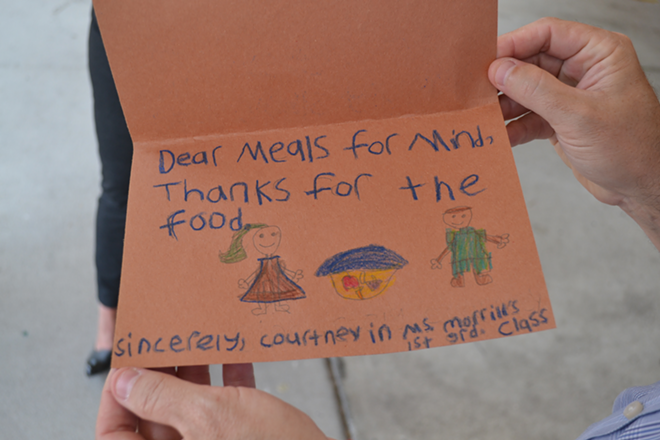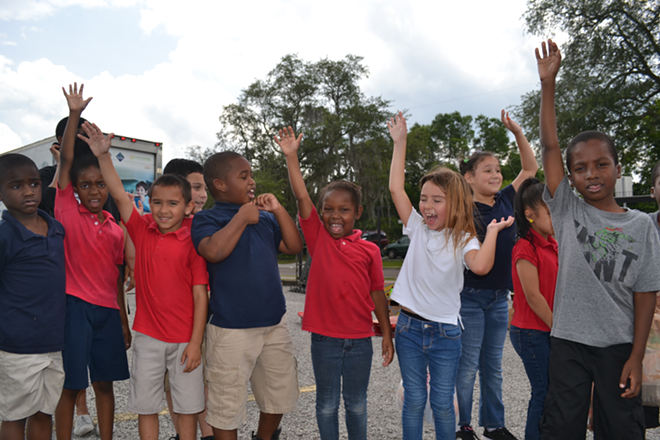The economy may have bounced back from the recession, but the number of hungry people in the Tampa Bay area should shock you.
One out of every seven adults and one out of every four children, approximately 700,000 people across the greater Tampa area, are considered “food insecure."
And, as we covered in late 2014 in a story titled The Working Hungry, food insecurity isn't simply a homeless issue.
Often, the most profoundly affected are children, and the extent of the problem goes well beyond the hunger itself. Many arrive at school hungry and malnourished, leading to lack of concentration, irritability and other behavior issues.
Longtime food distributor to the poor Feeding Tampa Bay believes rampant hunger has reached epidemic levels locally. In an effort to tackle the problem, the nonprofit, with partners with the likes of University of South Florida to offer food to those struggling to afford it. Through its Meals for Minds program, it aims to help area children get the nutrition they need.
On Monday, the group distributed food to children from food insecure homes at Tampa's Foster Elementary School.
Volunteers distributed an assortment of apples, potatoes, snacks and other fresh produce for the children to take home with them.
“It's very heartwarming to see directly what you’ve done for them is there, and their learning is much more attentive if their focused and not hungry. It really really makes a difference,” said Lauren Foly, a first grade teacher at the school.
As the children lined up to receive their bags of apples and other food to take home to their families, Feeding Tampa Bay Executive Director Thomas Mantz, along with USF College of Arts and Sciences dean Eric Eisenberg and USF Anthropology professor Dr. David Himmelgreen chatted about a new partnership between the university and the nonprofit called the Hunger Action Alliance, which will allow USF researchers to monitor the nonprofit's distribution to food-insecure families and the impact it has on student performance.
“Hunger is growing at an incredibly rapid rate in our community,” Mantz said. “And the long term effects of hunger, we think, are going to be pretty devastating. We’ve long believed we need to know more about why, what the long-term implications of this [hunger] are. We went to USF to say y'all are the preeminent study/research university in our area, we really think that figuring out what’s happening with health and hunger in our community is a critical issue, and could you help us with that?”
The research may also help Feeding Tampa Bay better identify areas to invest in and implement new programs and directives to help the hungry in the community.
“There is a lot of research to show that kids who go to school hungry, have lower attention spans and are more likely to have behavioral problems and depending on their age this can have a long lasting effect on their health and well being, on cognitive development, even their physical growth,” said Dr. David Himmelgreen, professor of Anthropology USF.
“It's not like other universities (USF) that the kind of research we do, we're not interested in the kind of research that just sits on the shelf or in an academic journal, we really want to do research that makes a difference in our community and so when these guys came forward with this opportunity it was the natural thing for us to do,” said Eisenberg.
Offering virtual food drives on their website, feedingtampabay.org, as well as a large food bank, community outreach programs and nutritional education, FTB regularly visits schools, boys and girls clubs and other charitable organizations with a connection to the food insecure. As well as filling children’s back packs with nutritious food, they also run a drive through where parents can come and pick up food for their families.
“We also have more and more people that are coming in [to the food bank] that are above the poverty level and that’s more and more of what we're seeing, so 700,000 may be a low number. Twenty-six or 27 percent of the food we distribute goes to people who have a degree or are degree-seeking, which is pretty stunning,” Mantz said.


















